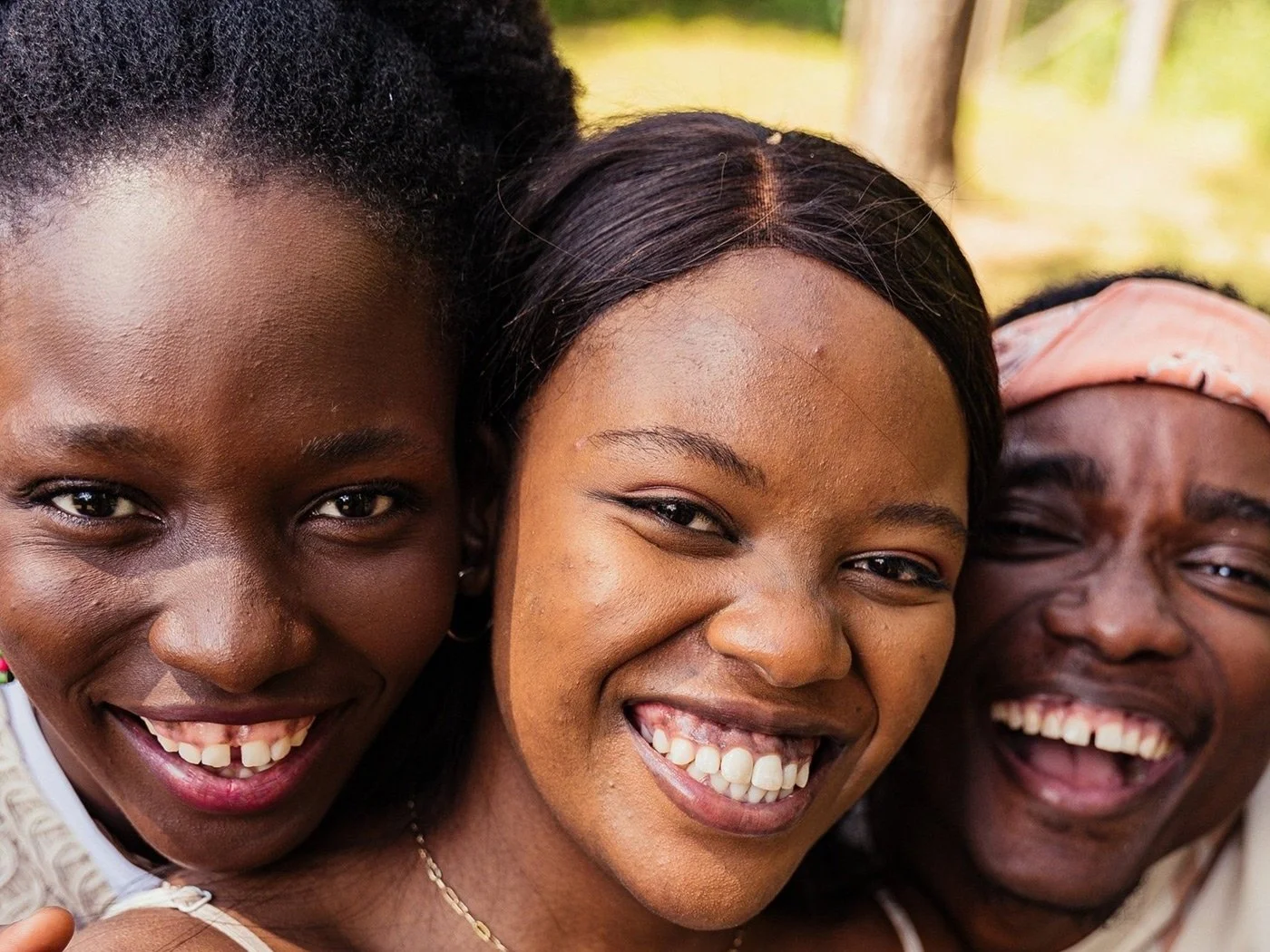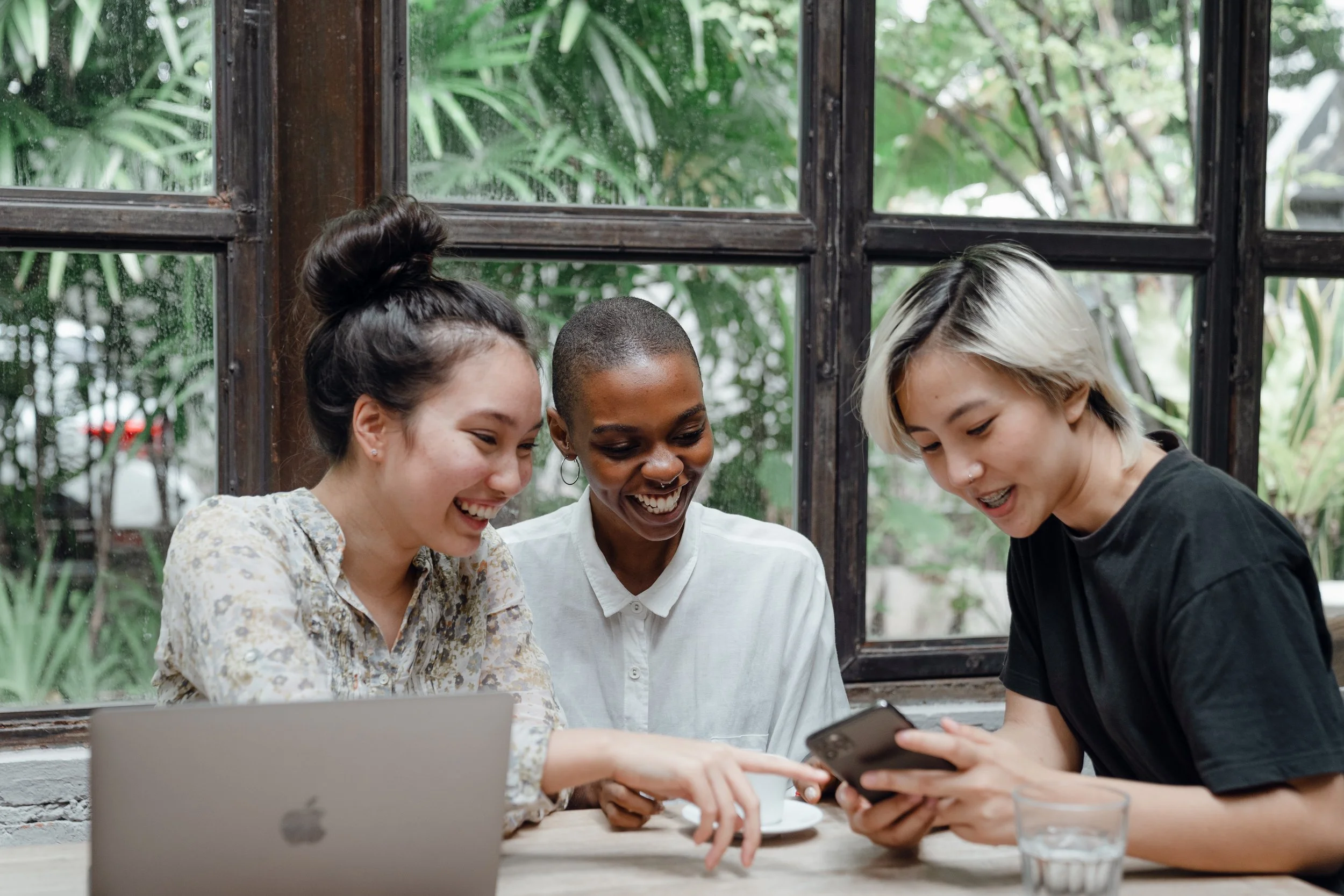Black maleness in the US is often connected to stereotypes and assumptions, and cultural norms can compound why some men may avoid addressing the stressors that impact their mental, emotional and relational health.
Time to Talk: How the Black Community Can Embrace Mental Health Conversations
Based on the dangers and circumstances Black people faced, it’s understandable why acknowledging and validating feelings, seemed like a luxury we couldn’t afford. Fortunately, much of that is changing as many throughout the diaspora are looking for ways to heal generational trauma and are finding ways to create safe spaces to heal themselves and their relationships. And this change is happening one person, one family, and one day at a time.
This Is What's Missing in Your Dating Equation
For most people, the old ways of meeting a person, dating, and falling in love are no longer adding up to living happily ever after. More people are turning to dating apps like Tinder and Hinge to see if they can find their perfect match. According to a 2022 Pew Research, approximately 300 millions people use online dating platforms. Unfortunately, out of the 42% of the dating site users who aim for marriage, only 13% get engaged or married from the platform.
Five Ways to Make Your Mental Health a Priority
When we prioritize our mental health, we can enjoy a clearer mind, a better sense of self, improved productivity and an increased capacity to manage unexpected change. The best part: Making adjustments to your daily life doesn't have to be difficult. Mental health experts weigh in to share practical ways to make your mental health your priority…
No Mother Ever Wanted A Legacy of Trauma
Mothers birth more than children. They birth a new possibility for a community. Mothers carry the legacy of history and culture and often dedicate more time to maintaining a household and rearing children than they do caring for themselves. Mothers are the first teachers of children. They show them how to see the world as it is or as it can be.
Understanding the Power of Your Relationships Can Change Your Life
Leveraging the power of your relationships can make a big impact in your health and feeling of well being. A study done by The National Library of Medicine showed that those who have healthy close relationships not only have less stress but also live longer. Research continues to demonstrate that relationships impact our overall feeling of happiness as well as our mental health.
Knowing Your Attachment Style Will Not Save Your Relationship
How to Show Up for Your Children Without Losing Yourself
It’s hard to overstate how important it is to protect our children and help them navigate life’s challenges. Some children are dealing with trauma or facing difficult circumstances far outside their control. They need their parents, but they also need a community of adults they can turn to when they need them.
The Grief Toll of Breast Cancer Hits Different During a Pandemic
By Yolande Clark-Jackson
You either know someone who has fought breast cancer or you know someone who fought beside someone with it. And, if you have lost a loved one to breast cancer, you know all too well the grief that follows. There is sadness, but there is also anger. If you have lost someone to breast cancer, you want to know why. Why didn’t the treatment work? Why haven’t they found a cure yet? Why my friend, cousin, mother, auntie or sister? It is normal to question why and to experience a range of emotions when someone you care about dies. It is normal to grieve what we have lost.
Each year one and eight women are diagnosed with breast cancer. And, according to The National Library of Medicine, Black women are twice as likely to die from breast cancer than white women regardless of the stage of the cancer. This disparity is scary. And, although rare, men can also be diagnosed with breast cancer, and some do not survive their diagnosis.
Each October a pink ribbon reminds us of the impact the disease has made on families and communities. But, because of various medical and social disparities, Black communities are hit the hardest. And, for the past two years, the pandemic has increased the grief around breast cancer and has taken a toll on those battling the disease as well as their caregivers. It has taken a toll on the communities in which they belong.
The Pandemic Makes Matters Worse
The pandemic has taken away so much of what used to be normal, but in 2020 it also took away the ability for some to feel safe to leave the house to get mammograms. Most didn’t want to go out of their home to the grocery store, so it is unlikely those same people would want to risk getting covid to see if they could possibly have cancer.
As of October of 2021, worldwide over 4 million people have died from Covid-19. Most of us have already lost family members, friends, or coworkers to coronavirus, and we are still grieving those losses, so the added fear and grief around receiving a cancer diagnosis could reel someone into emotional distress.
Treatment for Breast Cancer Often Leads to Adverse Effects
Those who receive a breast cancer diagnosis have to receive treatment. This involves either chemotherapy or radiation which often equals side effects that are both physical and emotional. The changes that happen in the body and mind can add additional stress on an entire family. Those who fall into depression and experience feelings of hopelessness often lose the desire and ability to take good care of themselves. According to the American Psychological Association, research shows that women with depression are less likely to survive a breast cancer diagnosis. Depression takes a toll on an entire family. Those who care for loved ones with a breast cancer diagnosis also need emotional support.
Caregivers Need Support Too
When you care for a loved one battling cancer, you already begin feeling grief for the loss of the way things used to be. You grieve the loss of the time before the diagnosis, the appointments, and the fear. You know you need to be strong for your loved one, but you don’t always feel strong. You often feel exhausted with fear and worry. If you are a caregiver, you may be working to manage feelings of stress and waves of sadness. You may need support to help you maintain your mental and emotional health. You may need help finding the right language and tools to support your loved ones when they are feeling scared, frustrated, or sad. You may also need to seek out professional help and call on your community for support.
What We Can Do in Our Own Communities
As a community, there are things we can do to support our friends and loved ones battling breast cancer.
We can acknowledge that our friend or loved one is experiencing a difficult time and that it is compounded by living in a pandemic
We can listen. Sometimes being a good listener when someone is experiencing feelings of overwhelm can be the support our friends or loved one need at the moment.
We can encourage them to seek mental health services so they can get the long-term and consistent professional support they need to help get them through.
This month, as we raise awareness about breast cancer, let us remember those who are in the fight for their lives during one of the most difficult times in our history. And, let us remember to celebrate breast cancer survivors and their loved ones who support them.
At Ibisanmi Relational Health we are here to support you and your loved one affected by breast cancer. Book a 15-minute consultation here.
And, be sure to follow us on IG at @ibisanmi.relational for mental health check ins and inspirational posts.
The Emotional Tax of Racial Trauma
By Yolanda Jackson
While the whole world manages health concerns related to the pandemic, African Americans and Asian Americans have the extra burden of trauma due to racialized violence. After the March 19th shooting in an Atlanta spa and six Asian women dead, people were again reminded of the evil that was always present. How do we deal in society that continues to harm People of Color? How do we manage in a society that requires a mass shooting or knee on a neck to see the horror and effects of white supremacy?
Asian Americans have been under attack since the pandemic. According to NBC news, there were 3,800 racial incidents reported by Asian Americans over the past year. Over 500 during the first three months of 2021. Now, Black Lives Matter and other Black organizations are publicly standing in solidarity with Asians and Asian Americans against Asian Hate crimes. Black people are once again, standing in solidarity even when our own mental health is at risk.
African Americans Live with Racialized Trauma
Because African Americans have suffered multiple traumas due to discrimination, hate crimes, and police brutality, seeing Asians and American Asians publicly attacked causes Black communities to share the stress of their racialized trauma.
As racialized violence continues to plague the African American community, it is impossible to avoid being triggered by hate crimes committed against other groups. It is also common to experience a range of emotions in response. According to the American Psychological Association, a 2019 study stated, “Similar to post traumatic stress disorder, racial trauma is unique in that it involves ongoing individual and collective injury due to exposure and re-exposure to race-based stress.”
So how do we show up for Asian and Asian Americans?
African Americans have not always felt supported by Asian Americans which has led to feelings of resentment and isolation. Yet, witnessing violence against Asian Americans has triggered their own racial trauma.
When stressed, it may be difficult to show up for another group when still seeking solace and support for your own community. It may also be difficult to find the tools to assist in the unification against all other racial violence when you have not attended to the impact of past, present and collective traumas. But, as Dr. Martin Luther King said, “Injustice anywhere is a threat to justice everywhere.” So, as we do the work to heal our communities, we must work to support one another.
We Must Heal Our Communities of Color
Communities of Color need mental health support. Without the tools to process racialized trauma, it is easy to fall into depression. It is also easy to forget that all communities of color are victims of white supremacy. Being aware of your mental, emotional, and relational needs will allow you to identify the types of support you need during these difficult times.
In these times, you must address your mental, emotional, and relational needs.
Mental needs:
A space for you to process your thoughts and to breathe
Name and acknowledge the impact of white supremacy
Acknowledge that racism and racial trauma are real
Be aware of the effects of racial trauma on your body, mind and spirit
Emotional needs:
Allow yourself to be and for your emotions to flow
Let yourself know that it’s okay to cry, be enrage, frustrated, numb, exhausted, etc., because of the white supremacy and its deadly impact on your life and the lives of communities of Color
Move your emotions by speaking, writing, drawing, walking, dancing, cooking, exercising
Validate your fears, anxieties, grief and painful experiences with racism and racial trauma
Relational needs:
Support from the people and communities who see, love you and affirm your worth
Connect with your families and friends
Connect with the resilience of those ancestors and elders who came back you to affirm your dignity and humanity, in the face of white terror and supremacy
Connect with communities who are authentically working to dismantle white supremacy and its racialized trauma on us all
In addition to all these needs, seeking out professional health for your mental, emotional and relational well-being is always important. Particularly, finding a culturally affirming therapist to discuss and process racial trauma is essential. At Ibisanmi Relational Health, we’re available to help you journey the pain and the grief from racialized trauma. You can book your 15-minute consultation here.
And be sure to follow us on IG at @ibisanmi for mental health check ins and inspirations.
A Year Round Celebration of Black Love: Relational Health Matters
A Year Round Celebration of Black Love: Relational Health Matters
By Christiana Ibilola Awosan, PhD LMFT
As I sit in front of my computer to write Ibisanmi Relational Health’s first blog in the month that we celebrate Black History and Black Love, I can’t help but think about the trials and tribulations our ancestors and elders endured in a world that saw them less than human and unworthy of love and strong familial relationships. Yet, even in the worst of times, relationships were formed, and they aided in the protection and survival of our people. Black love endured, despite the obstacles. It endured, even when it was not considered legitimate, real, strong or even possible.
A few years ago when I was working on my dissertation on Black romantic relationships processes and experiences, I spent many nights in tears, sadness, rage and amazement of my ancestors. As I poured through the narratives of enslaved Black men and women, I understood the enormous fears and realities of separation that led to the denial of many to form loving romantic and familiar relationships. The cruelty of whiteness through the system of slavery worked to strip their humanity and deprive them of the dignity of human connection with those they loved.
The impacts of such brutality continue to ripple consciously and unconsciously in the ways that we build and nurture our love with each other within Black communities. As if building and sustaining human connection is not difficult enough, the generational and present-day trauma of racism adds an additional burden to protecting and sustaining our love for one another.
Acknowledging our history and continuing the struggle to keep Black Love alive is work that needs to be done daily, not just in the month of February. Black Love is resilience! Struggling to cultivate and maintain Black Love, in a world that viewed and continues to treat this love of ours as less than, not deep enough, or wide enough, takes courage and intentional dedication.
Every day we are reminded that we need to protect, cheer and nurture this Black Love. This month we’re remembering and celebrating our ancestors' contributions to a country that undermined their humanity. Let us, their progeny, live out Black history every day as we focus on our relationships with each other. We need to celebrate our joys, hopes, laughter and dreams. We need to affirm that the struggles of our ancestors to cultivate and maintain their love wasn’t in vain—because we are still here!
Let us continue to speak the truth and live out the reality that their lives, their love, our lives, and our love matter. Black History. Black Love. Every Hour. All Day. All Year!












When we prioritize our mental health, we can enjoy a clearer mind, a better sense of self, improved productivity and an increased capacity to manage unexpected change. The best part: Making adjustments to your daily life doesn't have to be difficult. Mental health experts weigh in to share practical ways to make your mental health your priority…